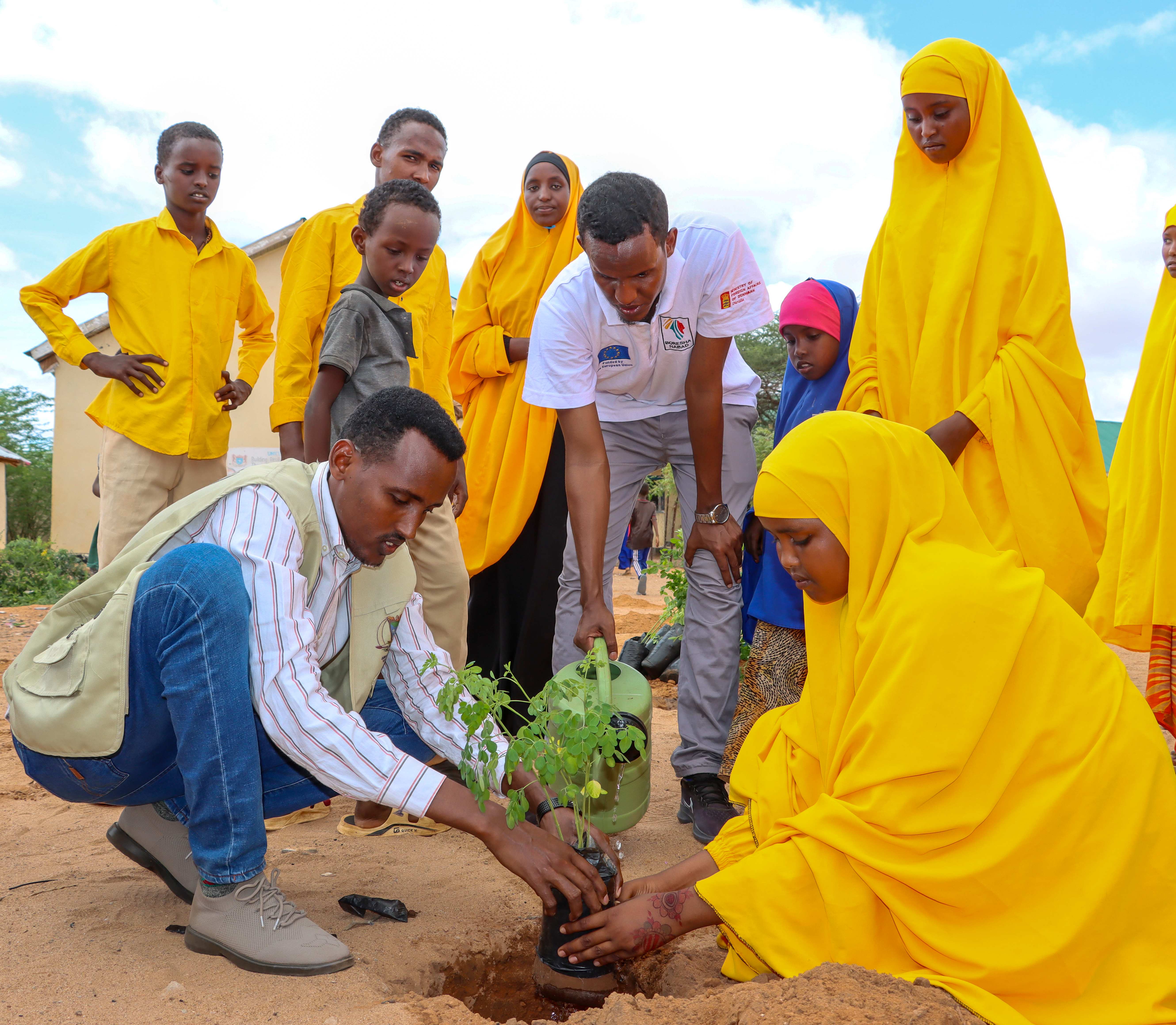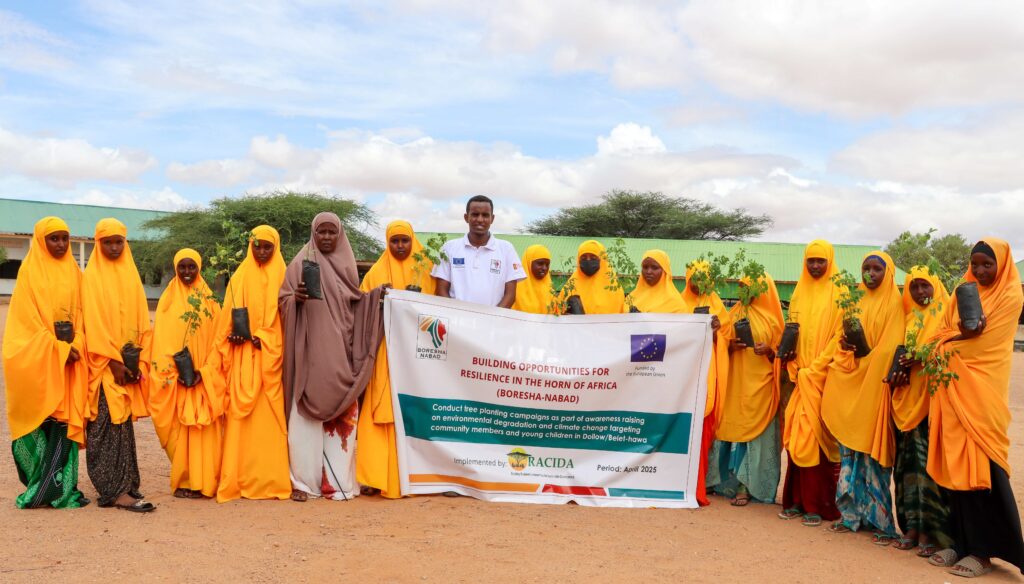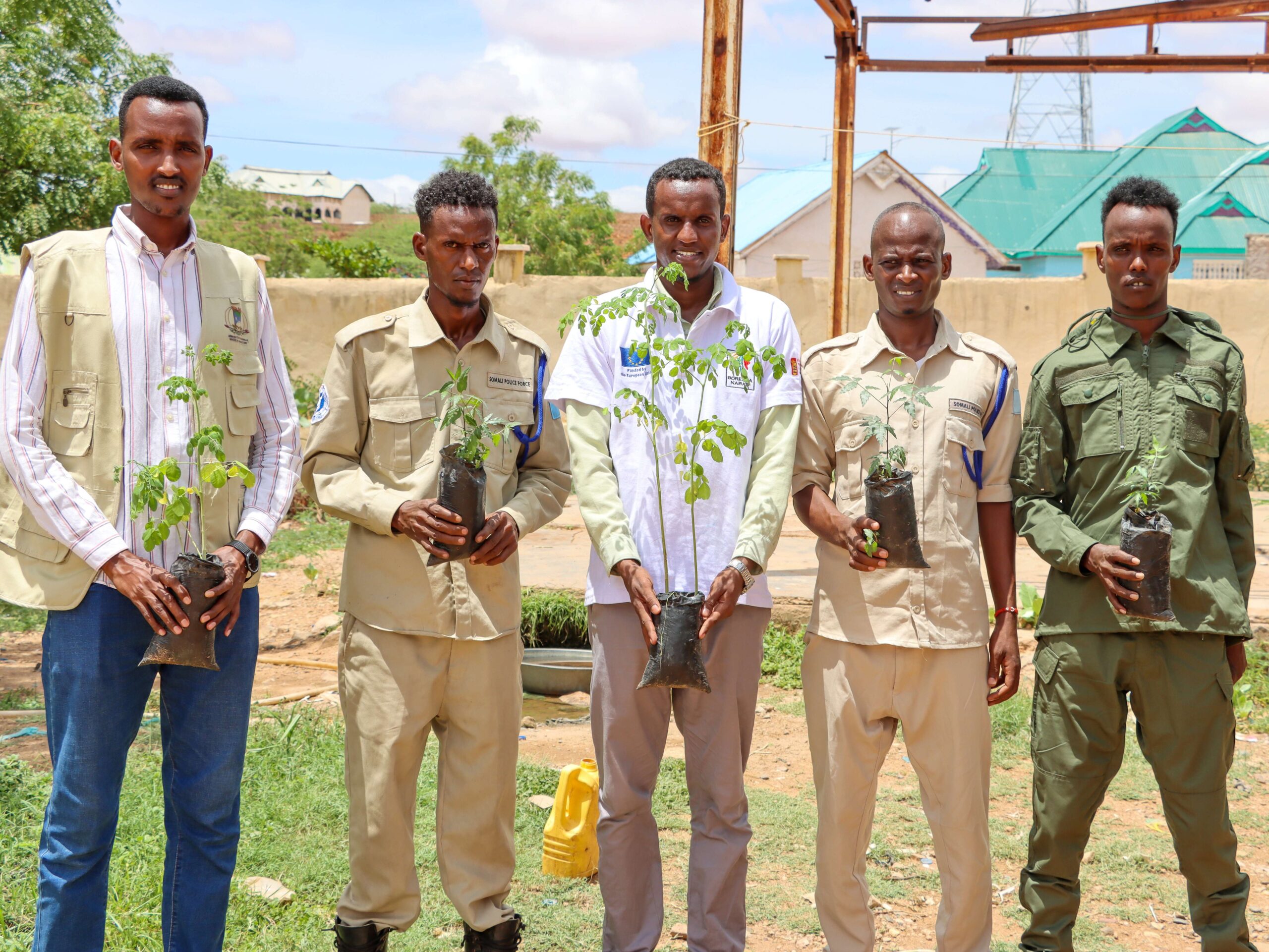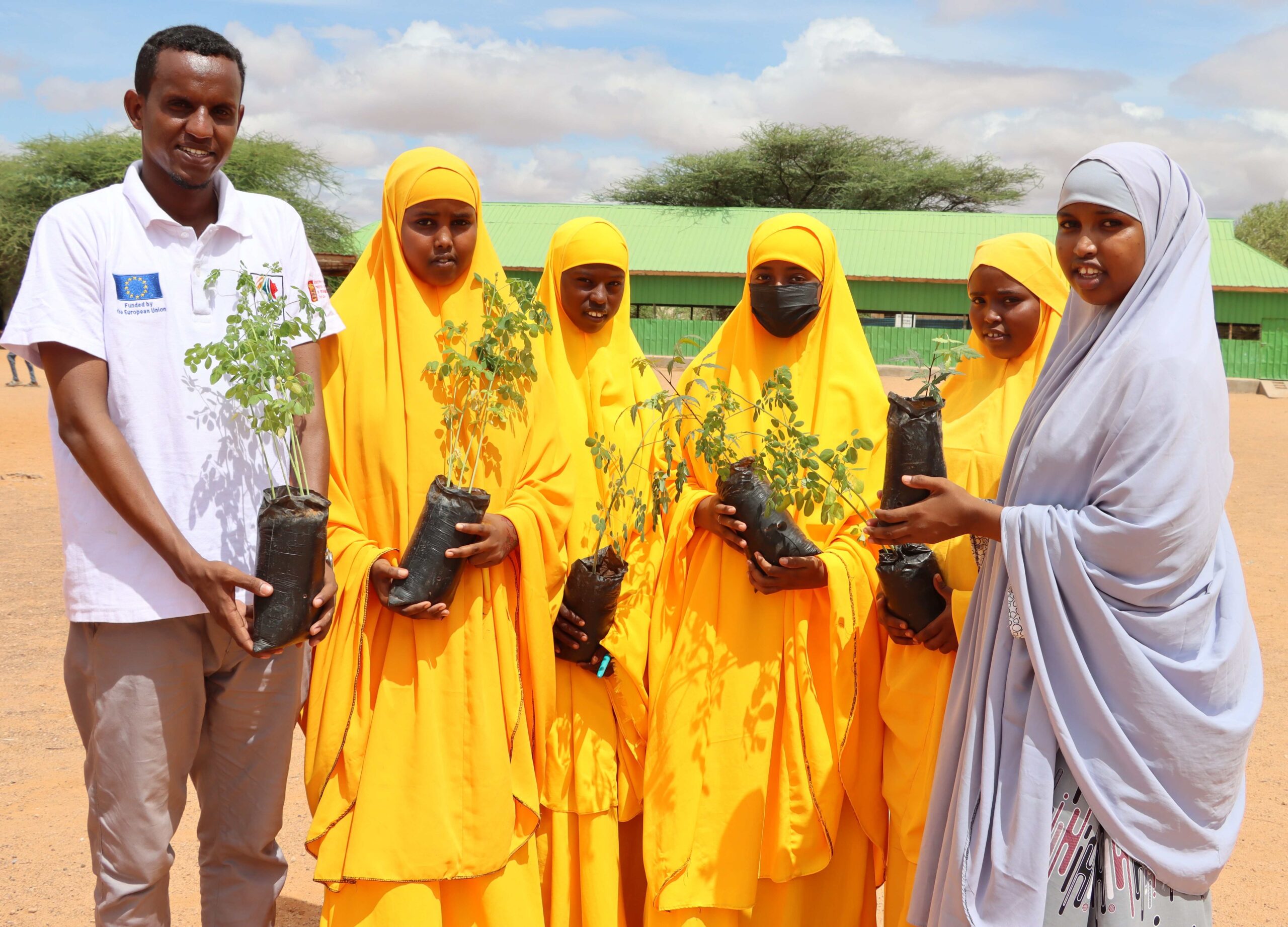Across the borderlands of Somalia’s Gedo region, forests are vanishing at a troubling pace. For decades, charcoal production has offered many families a way to earn a living. Yet this survival tactic has come with an invisible price. With each sack sold for only $5, more indigenous trees are lost, landscapes are left bare, and climate shocks become harder to withstand.
Between 2000 and 2017, Somalia lost an estimated 686,000 hectares of forest. Global Forest Watch recorded 595 deforestation alerts across seven hectares in just one week this year. The impact is already visible; flash floods, intense droughts, and rising temperatures have become part of everyday life in these already fragile communities.
To address the escalating deforestation and support communities in adapting to the intensifying effects of recurring droughts, the Building Opportunities for Resilience in the Horn of Africa (BORESHA-NABAD) programme, funded by the European Union and implemented by RACIDA, has launched a market-driven tree-planting initiative in the border districts of Dollow and Beled-Hawa.

The campaign is rooted in a systems change approach that places women entrepreneurs at the centre of ecosystem restoration. It links seedling production to community tree planting efforts, with a view to unlocking economic opportunities while contributing to long-term climate resilience.
7,000 trees have been planted across nine public sites, with 3,500 trees in each district. In Dollow, planting was done at Qansahley Primary, Dollow Primary and Secondary schools, and the District Police Station. In Beled-Hawa, trees have been planted in the compounds of Beled-Hawa Primary, Waberi Primary and Secondary, Dawa Primary, and Gedo University.
The seedlings, ranging from neem and moringa to a variety of fruit-bearing trees, are all locally sourced from 60 women entrepreneurs supported through BORESHA-NABAD nursery groups. These women are not only supplying quality seedlings but also shaping demand, positioning themselves as central actors in Gedo’s growing green economy. Their production is helping establish a more reliable, community-driven seedling supply chain across the Gedo region, strengthening both local markets and restoration efforts.
“We’re seeing a shift. Institutions are becoming customers, and women are becoming entrepreneurs. It’s not just about planting trees, it’s about growing a system that works for both people and the District,” Abdirahman Carays, BORESHA-NABAD RACIDA Programme Manager.


By embedding tree planting in learning institutions, the project seeks to recruit young learners as agents of environmental stewardship to support communities in adapting to new narratives around restoring landscapes, fostering systemic change, rejuvenating green spaces in these institutions, enhancing biodiversity, and contributing to climate resilience efforts from the ground up.
We have lost so many trees to charcoal burning. Our environment is nearly destroyed. This initiative is giving us hope, and more importantly, teaching our students the value of reforestation
– Halima Mohamed, Teacher, Qanshaxley Primary School.

